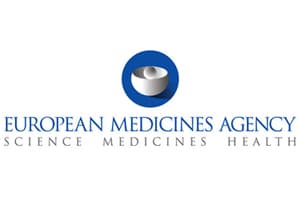 The European Medicines Agency (EMA) has selected six medicines to spearhead its adaptive pathways project, which is trialling a progressive licensing model for new drugs.
The European Medicines Agency (EMA) has selected six medicines to spearhead its adaptive pathways project, which is trialling a progressive licensing model for new drugs.
The aim of the project is to develop ways to accelerate the registration of new drugs – with close consultation between the regulator, drug developer and other stakeholders including patient groups and health technology assessment (HTA) agencies – so they can reach patients more quickly.
The EMA asked for volunteer companies earlier this year when the pilot project kicked off and received 34 applications with the list currently whittled down to six candidates and entries still open until February 2, 2015.
Applications included six advanced-therapy medicinal products (ATMPs) and 12 orphan drugs, while 14 of them were for new cancer therapies, and 10 were deemed to have fulfilled the entry criteria. Discussions have now started to see how the adaptive licensing approach can be implemented in practice.
“The first of these in-depth discussions, on the quality aspects of an ATMP, took place in December 2014, with others already planned during 2015,” said the regulator in a statement.
A report on progress with the pilot – now renamed ‘adaptive pathways’ to emphasise its role as a tool to encourage earlier dialogue between parties rather than establishing a new licensing pathway – was published earlier this month.
In the document, the EMA notes that it is considering two ways to hasten patient access to drugs. The first model would involve approval in a smaller, well-defined patient group with use possibly expanded later to a larger population. The second would involve an early possibly conditional – approval based on surrogate markers with obligations to generate more clinical data later on.
A key part of both models is early involvement of the HTA to try to streamline the health economic appraisal of new drugs. Discussions with 13 HTAs from across the EU took place earlier this month in order to gauge their interest in taking part in the process.
“A full review of the outcome and impact of the adaptive pathways pilot project will be conducted once at least six medicines selected for the pilot have completed a procedure of parallel scientific advice with HTA bodies,” said the EMA.
Earlier this year, UK Parliamentary Under Secretary of State for Quality Earl Howe told a workshop on adaptive licensing that if the approach is successful it will demonstrate that regulation is “not a noose which stifles but rather a safety mechanism which can release medicines to patients in need”.




